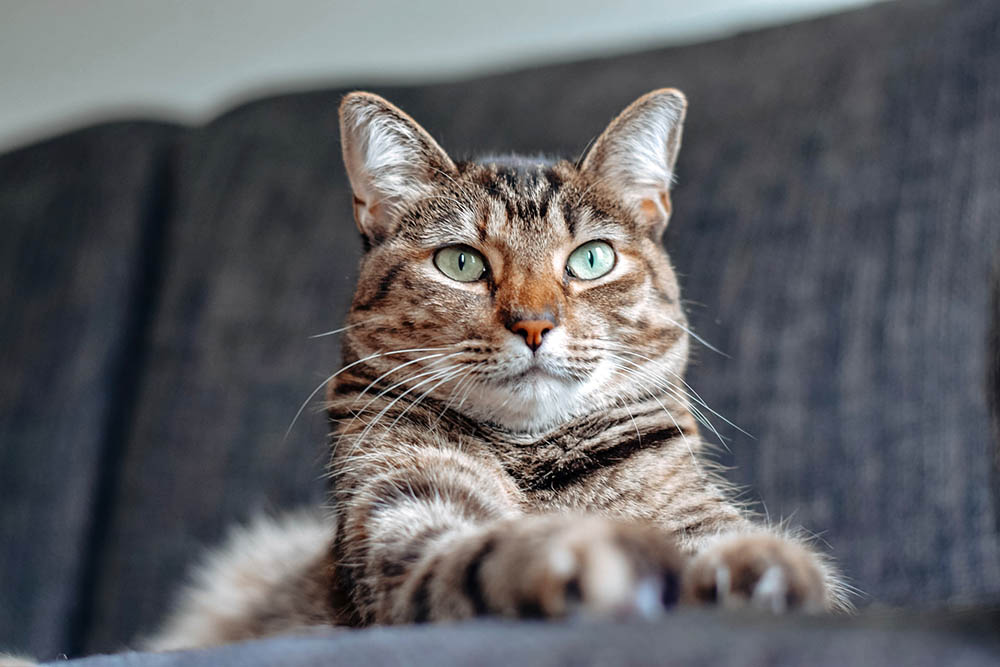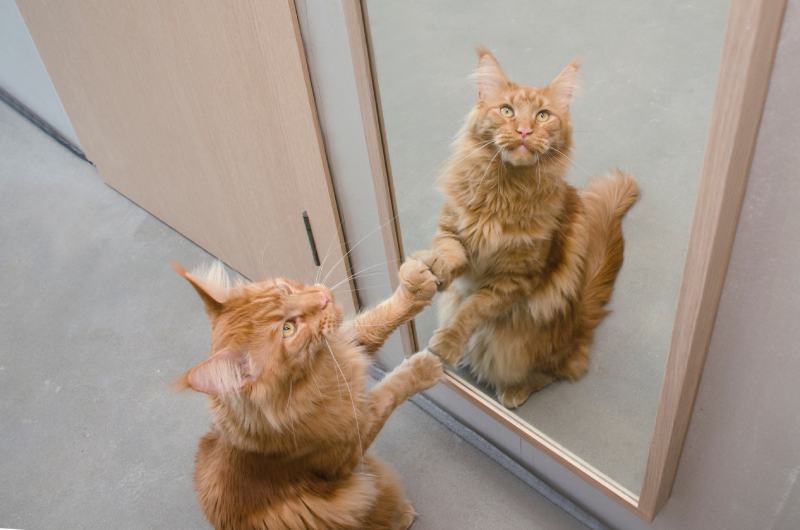Why Do Cats Bob Their Heads? 8 Reasons for This Behavior

Updated on
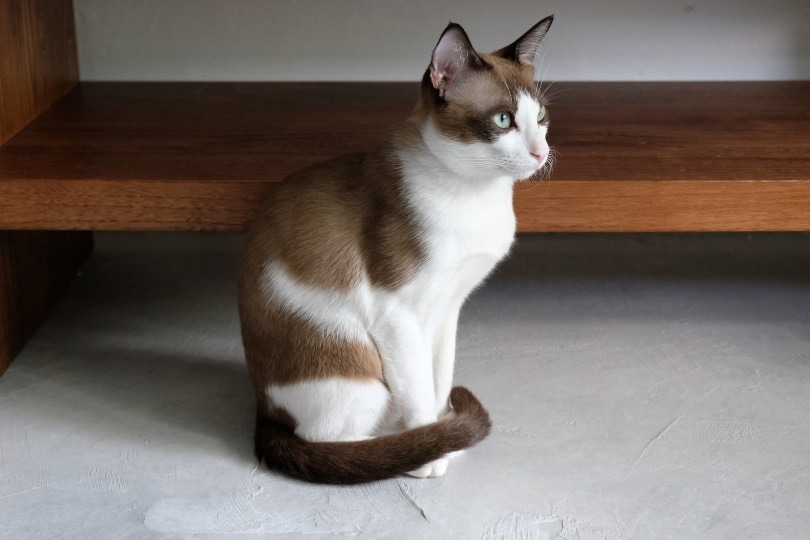
If you’ve ever been around cats, you’ve probably noticed them bobbing their heads up and down at least once. Some cats are more prone to this behavior than others, but most will exhibit it at least once in their life.
There are quite a few reasons that this behavior might occur. In many circumstances, this behavior is entirely normal. Other times, it can be a sign of an underlying illness.
You’ll need to consider the situation to determine exactly why your cat is bobbing their head. In many circumstances, it may not be a sign of a problem. However, in other situations, it may be a signal that you need to visit the vet.
The 8 Possible Reasons That Cats Bob Their Heads
1. Bacterial Infections
Bacterial infections can sometimes cause head bobbing. However, it depends mainly on where the infection is. If a cat’s sense of balance or hearing is thrown off, they may bob their head in an attempt to fix it.
In other circumstances, cats may become dizzy and disoriented from infections. This feeling can also result in bobbing their head up and down.
These infections tend to be most common in younger cats and seniors. Cats at both ends of the spectrum tend to have lower immune function, enabling infections to take hold if you aren’t careful.
Typically, these don’t clear up on their own and need to be treated by a vet. Antibiotics are usually provided, which can kill many different types of bacteria. The exact bacteria don’t always need to be determined before treatment, but some strains react only to certain antibiotics.
Often, the feline will begin treatment on a broad-spectrum antibiotic while waiting for the bacteria culture to come back. Antibiotic-resistant strains do exist, which makes treatment more complicated.

2. Ear Problems
Ear infections are typically bacterial and can cause head bobbing. However, other ear problems can also cause similar issues.
For instance, mites and fleas in your cats’ ears can cause hearing problems. In an attempt to hear better, cats may bob their head. Sometimes, even a build-up of wax can cause hearing issues and head bobbing.
More serious conditions, like mites and bacterial infections, can also cause issues. Vomiting and loss of appetite usually accompany ear infections. Your cat may also suddenly lose their sense of balance. They may not be quite as good at climbing as they were previously.
Some cats may even bob their head while they’re climbing in an attempt to right their balance. But this only works to a certain extent. Getting rid of the infection is the only way for them to regain their sense of balance altogether.
3. Medications
Certain medications have side effects that may affect your cat’s neurological state. For instance, they may affect your cat’s sense of balance. While there isn’t anything wrong with your cat’s ear, they may feel like there is.
In an attempt to right their balance and sense of space, they may nod their head up and down.
In some cases, the head-bobbing may lead to more severe side effects. If the medication is having an adverse effect on the cat’s nervous system, seizures and similar issues can also occur.
Reactions usually come in many forms. The head bobbing may come with nausea and diarrhea. Your cat may seem confused or disoriented. Often, the head bobbing won’t be the only side effect.
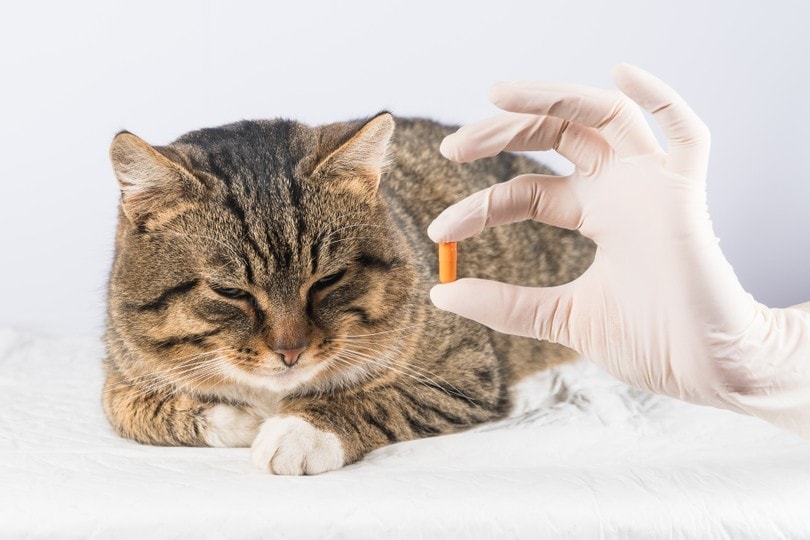
4. Genetics
Some breeds of cats are prone to genetic conditions that can cause head bobbing. One of these is Hypokalemic polymyopathy, which occurs in the Burmese cat. This condition is entirely hereditary. There is nothing that you can do to cure it or prevent it—besides health-testing cats to ensure that they aren’t carriers before breeding them.
This condition is characterized by muscle weakness. The muscle cells don’t quite work like they’re supposed to, which can lead to all sorts of issues throughout the body.
Sometimes, the muscles on the back of the neck are particularly affected. Your cat will find it hard to hold their head up all the way, which may result in bobbing.
This condition can be treated with potassium supplementation. Potassium helps the muscle cells function closer to how they’re supposed to, which can make the cat regain their strength. The supplementation must continue for their whole life, though.
5. Head Trauma
Just like people, cats can get concussions. These can lead to cognitive dysfunction, which can lead to head bobbing. The cat may be unable to hold their head up all the way, or their perception may be messed up. Head bobbing could be an attempt to fix their depth perception and sense of space.
Fights and falls are the most common causes of head trauma. Other cats can give each other head trauma if the fight is severe enough. Cats typically don’t hit their head when they fall, but it is possible.
Usually, cats may injure themselves outside. If a cat gets a concussion after falling, they may not be able to find their way back home if they’re outside.
Head trauma usually comes with other signs, not just head bobbing. Confusion and disorientation are the most common signs. Nausea and vomiting can also occur.
If your cat’s head trauma is bad enough to cause head bobbing, a trip to the vet is in order.
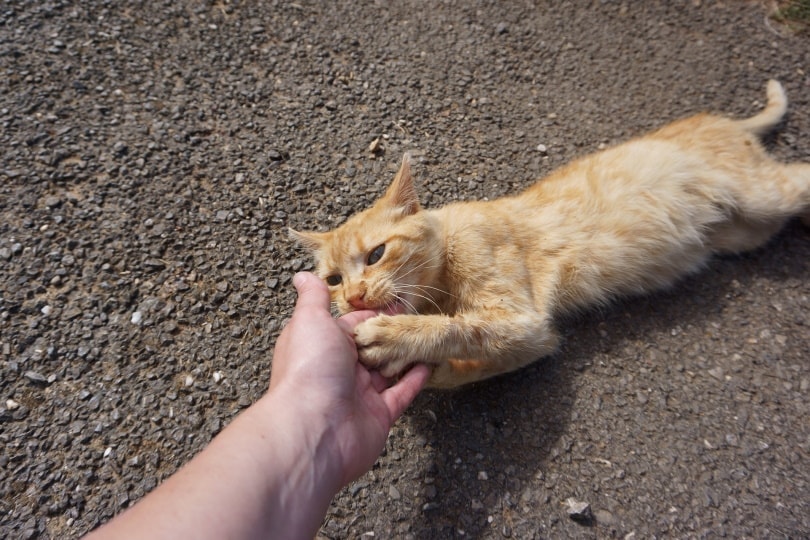
6. Vestibular Disease
This condition causes cats to become suddenly disoriented. They usually can’t walk correctly and may fall to one side when they attempt to stand. They may tilt or bob their head or both. Nausea and vomiting usually occur, likely because the disorientation causes motion sickness.
Cats may be unable to tell where their limbs are in space, making it hard for them to lie down in a comfortable position. They may attempt to lie down several times before they give up and plop on the floor.
Vestibular syndrome is caused by a temporary malfunction in the vestibular system, which governs the coordination and balance of the eyes and head. With the head unable to balance, the rest of the body ends up following suit.
What exactly causes a cat’s condition can vary. Sometimes, it’s the nerves themselves that appear to get confused. Other times, an ear infection is the root cause. Most of the time, this condition goes away by itself. However, it can indicate an underlying problem that may need vet attention, such as a tumor.
Related Read: Vestibular Disease vs Stroke in Cats: What’s the Difference?
7. Brain Problems
Various brain problems can also mess with your cat’s coordination and control, which can make them bob their head. Damaged brain tissue can cause this problem, whether it is due to an injury, infection, or something else.
Tumors can mess with a cat’s ability to balance and stay upright. Head bobbing is sometimes a symptom as the cat attempts to fix their balance, or it may be due to the cat’s inability to hold their head straight.
Sometimes, a kitten’s brain doesn’t develop correctly and causes head bobbing. Often, signs will occur within the first 6 weeks of life if this is the case. The developmental problem may happen in the womb or occur after the baby has been born.
These kittens may need extra help throughout their lives, but they can generally live full lifespans if cared for correctly.
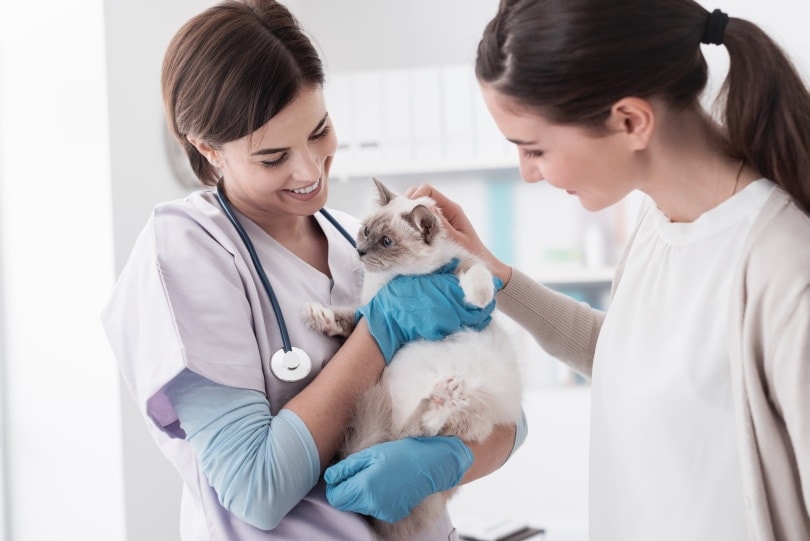
8. Hunting
Sometimes, cats bob their heads up and down once or twice when “hunting” to improve their depth perception. Often, cats do this when down on all fours and getting ready to pounce. To help land the pounce perfectly, they may bob their head.
However, they typically only bob their head once or twice, not multiple times. If your cat continuously bobs their head, it is usually a sign of a different problem!
Final Thoughts
Cats can bob their heads for all sorts of reasons. If this behavior occurs once or twice, then it’s likely nothing to worry about. Many cats bob their heads before they jump or bounce on something, though this is typically only one or two head bobs.
If your cat is continuously bobbing their head, there may be an underlying problem that requires veterinary attention. Bacterial infections, ear infections, and trauma can all cause head bobbing.
We recommend seeking veterinary care if your cat continues to bob their head or if they exhibit other signs. If your cat’s balance seems to be off, it’s a sign that there is likely an underlying problem.
- See Also: The Snowshoe Cat
Featured Image Credit: Tanasab, Shutterstock
